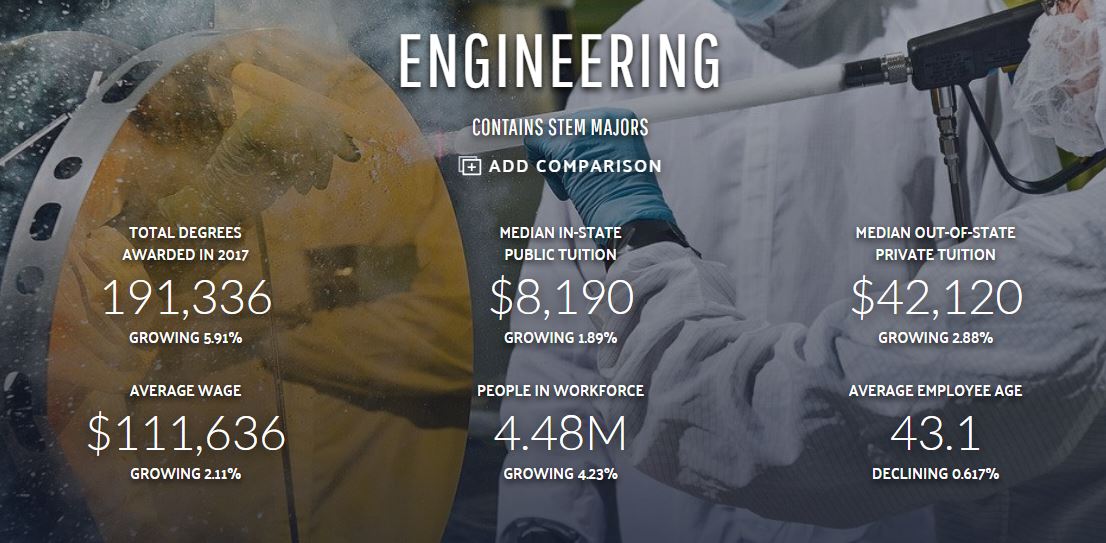The recent Engineering UK 2020 Educational Pathways into Engineering Report notes that there is a decline in the number of STEM teachers and “also found that young people’s knowledge of engineering across all stages of education needs improvement as only 42 percent of boys and 31 percent of girls know what they need to do next to become an engineer,” according to The Engineer.
The recent decline in university students studying engineering has also occurred in the United States.
As previously discussed, the UK is “using the Ingenious Public Engagement awards to promote creative engineering efforts and show the public the contributions engineers are making to help,” in order to improve the enrollment in engineering programs. The UK also has FE (Further Education) programs to improve interest in engineering.
As the National Academies Press states, “engineering skills and knowledge are foundational to technological innovation and development that drive long-term economic growth and help solve societal challenges. Therefore, to ensure national competitiveness and quality of life it is important to understand and to continuously adapt and improve the educational and career pathways of engineers in the United States”. This need has also been found in the UK and academia is responding, as noted above.
The numbers below, for the United States in 2017 show a slight increase in engineers, but many seem to be concentrated in mechanical and computer related fields. There is also a large need for more engineers in the US and every part of the world.

The UK report “ highlights the barriers that existed prior to the pandemic and that are now likely to make it more challenging to increase the number and diversity of young people choosing engineering.” Globally, women and minorities are underrepresented in engineering.
It urges “those in education, government and industry to work together to foster the critical engineering and technology skills needed for the UK to be a leader in innovation and improve societal and economic resilience and environmental sustainability. We hope our findings serve to inform these endeavours and thank all the organisations and individuals who contributed invaluable insight – via critical review, case studies and thought pieces – to this report.”
The report details ways that can be used to improve preparedness for an engineer career and enrollment in engineering degrees. Attention to STEM education can address the UK engineering sector’s long-standing skills shortage. This potential can be harnessed and the next generation of engineers cultivated if young people have educational opportunities presented and the choices they then make.


Engineers are an important part of the workforce. While medical people are creating the vaccines, they do so with equipment developed by engineers. Ventilators and the changing of manufacturing plants to make equipment needed to face the pandemic have been made by engineers.
We should never forget the future is shaped by engineers.
contact us:
 EN
EN
 English
English
 Chinese
Chinese
 Italiano
Italiano
 Portuguese
Portuguese
 Deutschland
Deutschland
 French
French
 Russian
Russian
 Japanese
Japanese
 Turkish
Turkish
 Korean
Korean
 Spanish
Spanish
 my account & orders
my account & orders

